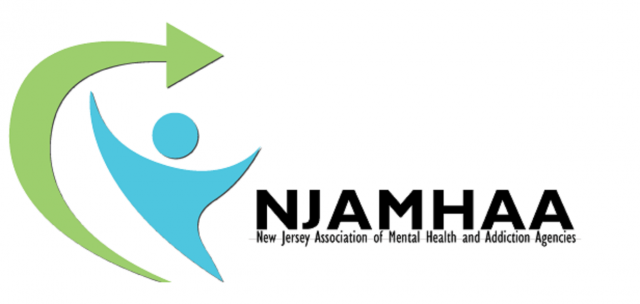May 30, 2024
Mental Health Month Underscores the Need to Eliminate Stigma and Ensure Access to Services
Statement from Debra L. Wentz, PhD, President and CEO, NJAMHAA; Executive Director, New Jersey Mental Health Institute; and Chair, New Jersey Governor's Council on Mental Health Stigma
As Mental Health Awareness Month comes to an end, the New Jersey Association of Mental Health and Addiction Agencies encourages every New Jerseyan to join each and every day in eliminating stigma, giving attention to their own and others' mental wellness, and supporting access to treatment and support services for all. While Mental Health Awareness Month creates opportunities to educate everyone, efforts must be undertaken on an ongoing basis to encourage more people in need of treatment or other support to come forward and to ensure that they can receive the services they require in order to achieve wellness and enjoy a high quality of life.
The demand for services from individuals of all ages and backgrounds continues to increase. In 2021, suicide was the second leading cause of death for people ages 10 to 14 and 20 to 34 and the third leading cause of death among individuals between the ages of 15 and 24. In a December 2022 survey, 58% of young adults reported experiencing little or no purpose or meaning in their lives in the previous month.
The statistics among adults are equally staggering. According to the U.S. Census Household Pulse Survey, the percentage of adults reporting symptoms of anxiety and depression increased from 11% in 2019 to about 40% in 2020. In the same time period, the worldwide prevalence of major depressive disorders and anxiety disorders increased by 28% and 26%, respectively, according to the World Health Organization.
Meanwhile, the behavioral healthcare workforce is declining. In 2021, fewer than half of Americans with mental illnesses were able to receive treatment due to the shortage of psychiatrists, psychologists and other mental health specialists, as reported by The Commonwealth Fund.
NJAMHAA urges state and federal legislators and local municipalities to help reverse these trends by significantly increasing investments into all mental health and substance use treatment workforce and services, as well as to address the social determinants of health (food, housing, transportation, education, employment, etc.).
In addition to significantly increasing investments into the state and nation's behavioral healthcare systems first and foremost, efforts to eliminate stigma must be continuously undertaken. Fortunately, progress has been made, largely due to the pandemic since many more individuals experienced mental health challenges and, therefore, developed an understanding of mental health disorders. However, much stigma still exists. Through education, misperceptions and judgments can be rectified or even prevented. As a result, people will not discriminate against others who are struggling and will be much more likely to offer help and hope.
Sharing successes is a powerful way to help eliminate stigma. Individuals' triumphs, not only directly related to mental health difficulties, but also in the accomplishment of other goals made possible by recovery from mental illness inspire others to pursue successes in their own lives.Examples of success stories and behavioral healthcare providers' roles in making these achievements possible are shared in NJAMHAA's Diverse Faces: All Are Worthy of Full Investment campaign brochure and videos.
We hope every day that stigma will be torn down and funding will increase so people have opportunities to enjoy wellness, and we will continue our efforts to make this vision a reality for everyone.



